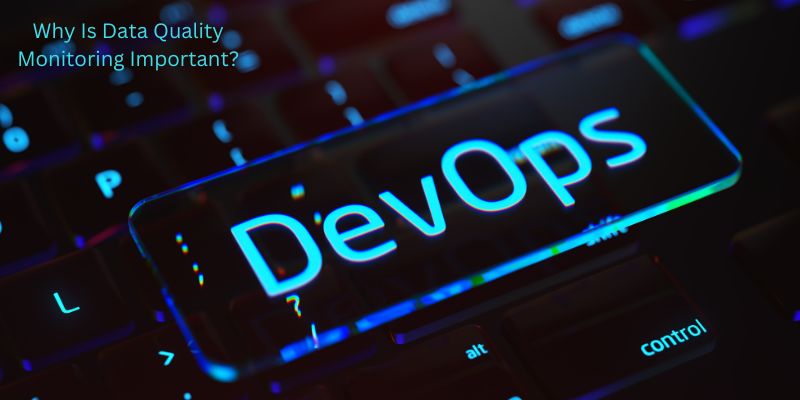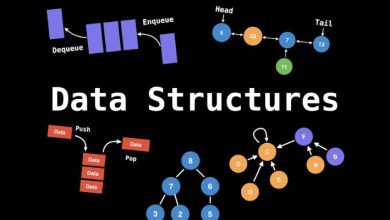Data Quality Monitoring – Best 6 Benefits And Reasons Why It’s Important
Every data instance that is produced, used, and preserved inside an organization is monitored and ensured to be of the highest quality via a data quality monitoring process. By actively modifying the processes or procedures associated with earlier errors, businesses may prevent possible problems from repeating in the future. When problems are handled proactively, the emphasis switches from a temporary patch to a long-term solution. In this article, with dipill.info, let’s find out some useful information about data quality monitoring!
Contents
1. Data Quality Monitoring – What Is It?

Data quality monitoring is now crucial for creating efficient machine learning as well as data-driven systems due to the exponential rise of data. In addition, 42% of data analysts who participated in Forrester’s online global research on data trust and dependability claim they spend more than 40% of their time examining the data.
To live up to expectations and satisfy business goals, data quality is tested, assessed, and improved. It could help businesses improve the consistency, accuracy, and timeliness of their data.
There are several approaches to assess the quality of data. But it is completely based on commercial requirements. It involves inspecting, testing, examining the data for consistency or correctness, or auditing the data by routinely assessing the data’s quality using the data quality tools.
Given the prevalence of real-time deep learning and data analytics, the only method to verify data is to keep track of its quality and evaluate it in accordance with a set of relevant quality standards.
2. Why Is Data Quality Monitoring Important?

You must use data quality monitoring if you want to make sure that the data is reliable and accurate. Poor data quality can result in poor judgment, resource waste, and legal problems.
Organizations can identify problems and take action before they have a significant negative effect by monitoring data quality. The benefits of data quality monitoring include the following:
- Data quality monitoring makes ensuring that all the information in the company’s database is accurate and complies with all the requirements for “quality data.”
- Cost-saving: By monitoring its data, a company may lower the amount of money it might otherwise have to pay if a mistake or issue with the data’s quality occurs.
- Increasing customer satisfaction: Customers are more inclined to trust a company with outstanding data than one with poor database administration and average data management.
- Increased decision-making happens across the board of a company as a result of better data quality. If you have access to more reliable data, you can make judgments with more assurance.
- Increasing operational effectiveness: By maintaining data quality levels, organizations may reduce the expense of locating and correcting inaccurate data in their database. Businesses can also avoid operational errors and breakdowns in business processes.
3. Data Quality Monitoring – What Is It’s Benefits?
Effective data management is crucial for maintaining competitiveness and grabbing opportunities. For businesses, high-quality data may provide a number of tangible benefits. Some potential benefits of excellent data quality include the following:
3.1 Making better choices.
Decision-making within an organization is improved by data quality. High-quality data may support businesses in making choices with more assurance. Risk may be decreased and outcomes can be continually enhanced with the use of good data.
3.2 More effective audience targeting.
Marketers always want to connect with the proper audiences, but in order to do so, they require access to high-quality data, and this pertinent data enables them to identify the appropriate audiences. You can identify who your target market should be if you have high-quality data.
It may be done by learning more about your target market and looking for potential new clients that share your values. To create more precise goals, utilize this data.
3.3 Better customer connections.
Customer connections are crucial for corporate success in every industry, and high-quality data may help them. By gathering information about your consumers, you will get to know them better. You may create content that appeals to your audience and even anticipates their needs with knowledge on their preferences, interests, and needs.
They can help you establish enduring relationships. You may avoid giving clients redundant and unnecessary material by carefully managing your data.

3.4 Implementing data is easier.
It is far easier to use high-quality data than low-quality data. Any firm that has trustworthy data at its disposal operates more efficiently.
You will have to spend time cleaning up inaccurate or inconsistent data in low-quality data. It suggests that you will have to wait longer to put the ideas generated by your data into action and that you will have less time for other tasks.
By ensuring that all of your company’s departments are on the same page, data quality also improves how well those departments interact with one another.
3.5 An edge over competitors.
If your data is of greater quality than that of your competitors and you use it more expertly, you get a competitive edge. Data is currently one of the most crucial tools accessible to organizations, provided it is of great quality.
You can spot chances before your competition if your data is of higher quality. By doing this, you may outsell rivals and more correctly estimate the needs of your prospects. Poor data might lead to missed chances and falling behind the competition.
3.6 Extra profitability.
Higher income may be attained by using high-quality data to develop more effective marketing campaigns that increase sales. As a result, your marketing endeavors will be more effective because there will be less wasted advertising.
Similar to this, analytics may show publishers which kind of content are most profitable and popular on their websites. If you are aware of this information, you may concentrate more of your time and resources on this topic.
Conclusion
Finally, data quality monitoring clarifies if you can rely on and trust your data: How reliable is the data that your data pipeline is feeding into the current data system? Engineers must be aware of the item’s degree in order to ensure that the technologies they are creating are trustworthy and won’t break down and harm your business.
Lack of oversight or visibility over data quality may lead to inaccurate insights and inappropriate decisions, which can be expensive or lead to a poor customer experience. Consequently, firms may read the aforementioned publications and adhere to sector-specific best practices for better data quality monitoring.
I hope you found this article about data quality monitoring useful. Have a great day!
Conclusion: So above is the Data Quality Monitoring – Best 6 Benefits And Reasons Why It’s Important article. Hopefully with this article you can help you in life, always follow and read our good articles on the website: Dipill.info




